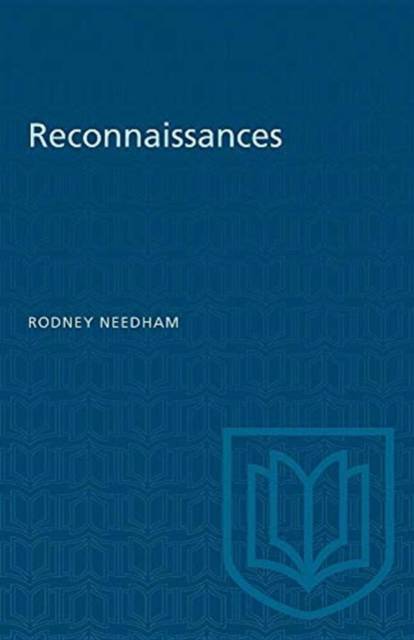
Door een staking bij bpost kan je online bestelling op dit moment iets langer onderweg zijn dan voorzien. Dringend iets nodig? Onze winkels ontvangen jou met open armen!
- Afhalen na 1 uur in een winkel met voorraad
- Gratis thuislevering in België vanaf € 30
- Ruim aanbod met 7 miljoen producten
Door een staking bij bpost kan je online bestelling op dit moment iets langer onderweg zijn dan voorzien. Dringend iets nodig? Onze winkels ontvangen jou met open armen!
- Afhalen na 1 uur in een winkel met voorraad
- Gratis thuislevering in België vanaf € 30
- Ruim aanbod met 7 miljoen producten
Zoeken
Omschrijving
The reconnaissances of this book are ventures in the deep analysis of the unconscious as testified to by world ethnography. The topics examined are the image of the half-man, the operation of analogical classification, and ideas about sovereign powers to which men conceive themselves as subject. In each case, analysis brings out remarkable uniformities on a global scale. These cultural similarities are not correlated with particular social forms or linguistic traditions, and in their characteristics features they are not the products of deliberate cogitation or creative invention. The formal attributes they share are that they are premised on binary opposition and symmetry. The argument is that, intrinsically, the social facts in question are spontaneous products of unconscious 'cerebrational vectors, ' and that they are archetypes of human experience.
The three studies included in the volume, originally delivered as lectures at the University of Toronto in 1978, form an important sequel to Needham's previous book, Primordial Characters, and further develop certain of its analytical themes and substantive issues.
The three studies included in the volume, originally delivered as lectures at the University of Toronto in 1978, form an important sequel to Needham's previous book, Primordial Characters, and further develop certain of its analytical themes and substantive issues.
Specificaties
Betrokkenen
- Auteur(s):
- Uitgeverij:
Inhoud
- Aantal bladzijden:
- 132
- Taal:
- Engels
- Reeks:
Eigenschappen
- Productcode (EAN):
- 9780802064042
- Verschijningsdatum:
- 1/11/1980
- Uitvoering:
- Paperback
- Formaat:
- Trade paperback (VS)
- Afmetingen:
- 140 mm x 216 mm
- Gewicht:
- 176 g

Alleen bij Standaard Boekhandel
+ 80 punten op je klantenkaart van Standaard Boekhandel
Beoordelingen
We publiceren alleen reviews die voldoen aan de voorwaarden voor reviews. Bekijk onze voorwaarden voor reviews.











